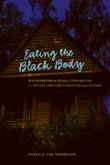From its very beginning, African American drama has borne witness to the creative power of the slaves to maintain their human dignity as well as to fashion a complex culture of survival. If the memory of slavery has always been at the heart of the African American theatrical tradition, it is the way in which it is processed and inscribed that has developed and is still changing. Through the close reading and socio-historical analysis of eight plays from 1939 to 1996, the author seeks to unravel the fluctuating patterns in the shaping of the theatrical memory of slavery long after its abolition. To do so, she defines the concept and practice of mnemopoetics as the making of memory through imagination as well as the critical approaches that decipher and interpret cultural productions of memory. As a constellation of processes akin to the fluidity of memory, mnemopoetics blends creative representation and critical exploration to suggest that the cultural creation of memory necessarily entails a self-reflexive involvement with its own interpretation. If slavery embodies the deep, foundational memory of America, African American drama represents the open, communal space where it becomes possible to convert the irretrievable nature of a vicarious past into the redeeming function of a collective memory.
«Through its insightful examination of African American dramas that deal with slavery, this book explores and expands on contemporary debates in African American scholarship around the power of memory and the legacy of slavery. Bada argues that the playwrights she discusses return to the unfinished business of slavery to «reconfigure» the relationship of the African American present to that traumatic past. Inventively, this book offers bold critical approach that has much to offer for critics, scholars, and students of African American drama.» (Harry J. Elam, Jr., Professor of Drama, Stanford University)







